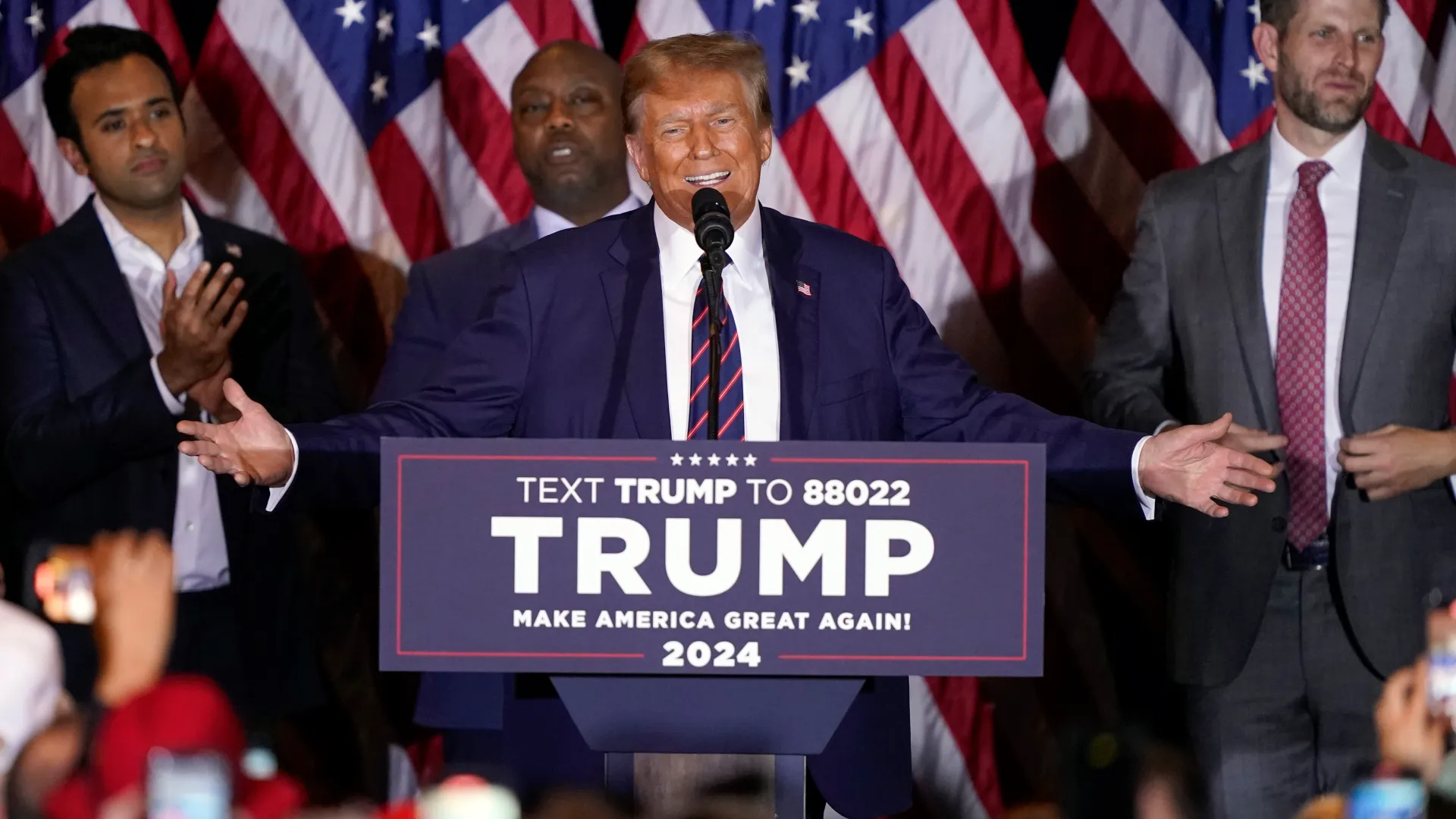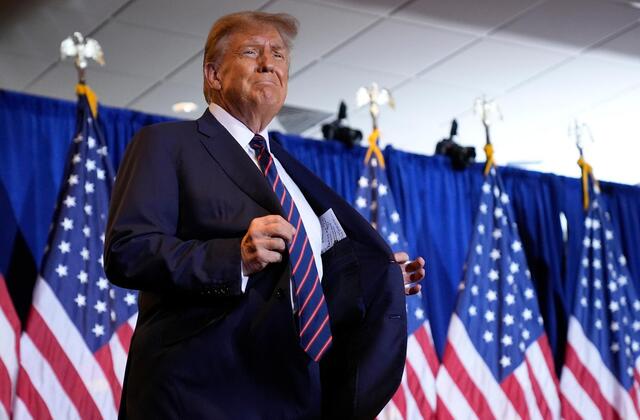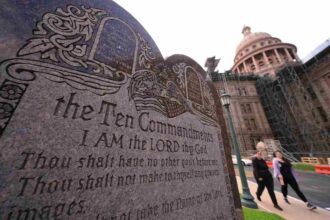Former US President Donald Trump strengthened his hold on the Republican presidential nomination by securing a decisive victory in the New Hampshire primary on Tuesday night, January 23.
With 55 percent of the votes counted by 11 pm Eastern Standard Time, Trump’s lead was commanding, leaving rival Nikki Haley, his former Ambassador to the UN, trailing at 43.5 percent.
As votes continued to be tallied, the exact margin of Trump’s triumph would only be determined later in the evening.
This win in New Hampshire follows Trump’s landslide victory in Iowa the previous week, where he secured over 50 percent of the vote.
Remarkably, he becomes the first non-incumbent in the modern era to clinch both Republican presidential contests in Iowa and New Hampshire.
READ ALSO: Intended Parents Demand Surrogate Terminate Healthy Pregnancy — But She Decided to Have the Baby Anyway
These consecutive victories provide Trump with substantial momentum as the Republican nominating campaign shifts to the South.
This trajectory positions him for a potential rematch in the 2024 general election against Democratic incumbent Joe Biden.

Addressing supporters at a post-election party in Nashua, New Hampshire, Trump declared, “We had one hell of a night tonight,” taking the opportunity to criticize Haley for her persistence in the race.
He confidently stated, “Just a little note to Nikki: she’s not going to win.”
Despite Trump’s back-to-back victories, Haley remains undeterred. At her own election night party in Concord, New Hampshire, she insisted that the race was “not over” and highlighted the upcoming significant contest in South Carolina, where she served two terms as governor.
However, recent polls show Haley trailing Trump by double digits in the state.
“This race is far from over. There are dozens of states left to go, and the next one is my sweet state of South Carolina,” Haley asserted.
Haley faced a setback in Iowa, finishing in a disappointing third place behind Florida governor Ron DeSantis.
DeSantis subsequently suspended his campaign and endorsed Trump, citing the clear desire among the “majority of Republican primary voters” to give the former president another chance.
As the South Carolina Republican primary on February 24 approaches, Haley encounters challenges, with potential reluctance from donors to fund a protracted primary process that may extend for months, possibly resulting in her defeat.
Following the South Carolina primary, the focus will shift to Super Tuesday on March 5, when more than a dozen states will hold elections and award delegates.
Trump has secured endorsements from almost all major Republican candidates who withdrew from the race, including the high-profile backing of Tim Scott, a senator from Haley’s home state of South Carolina.















